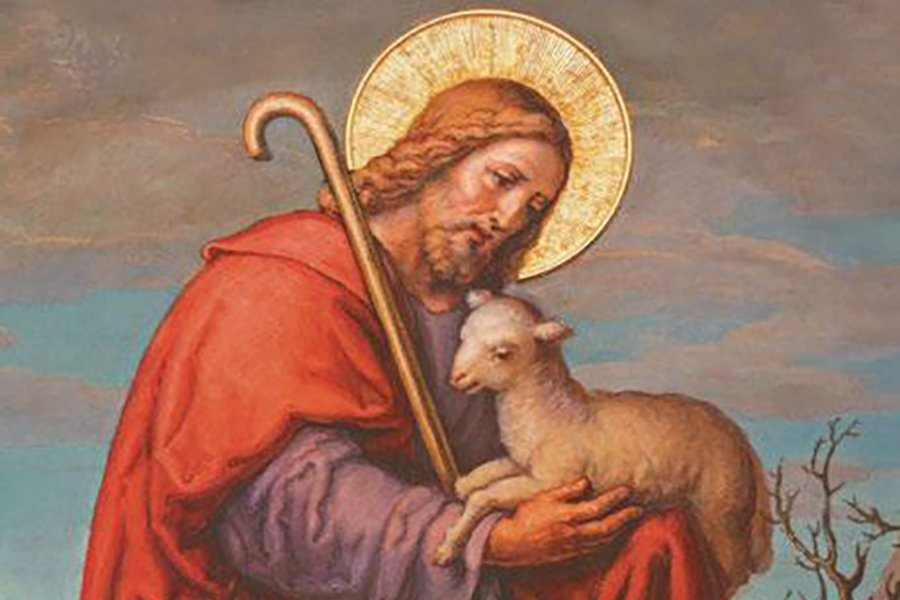
Fourth Sunday of Easter - Acts 4:8-12; 1 Jn 3:1-2; Jn 10:11-18
04-21-2024Weekly ReflectionThe Faithful DiscipleGROW: Several years ago I went to a shopping mall with my six-year-old son, and I could tell he was overwhelmed by the fast-moving crowds; he stuck close to my side. Not long into our trip, he turned a corner and, suddenly, his face lit up. He pointed at a young boy ahead. “That’s James! I know him! He’s in my class!” he exclaimed, and ran up to talk to him. Out of the sea of strangers was someone he knew, and who knew him. That changed the whole experience for him. Today’s readings are all about that kind of knowing. In the Gospel Jesus tells us that, like a good shepherd, he knows his flock and they know him. How comforting it is to know that Jesus not only knows each one of us, but he willingly chose to lay down his life for each one of us as the ultimate sacrifice of love. But how do we get to know our Good Shepherd better? By immersing ourselves in Scripture and prayer and seeking a personal relationship with him. If we stay close to the Lord, we’ll know his voice when we hear it – in the quiet of our prayer, in the everyday promptings of the Spirit in our decision-making, and even, in the midst of all the noise, as the calming and guiding voice leading us along the right path.
READ MORE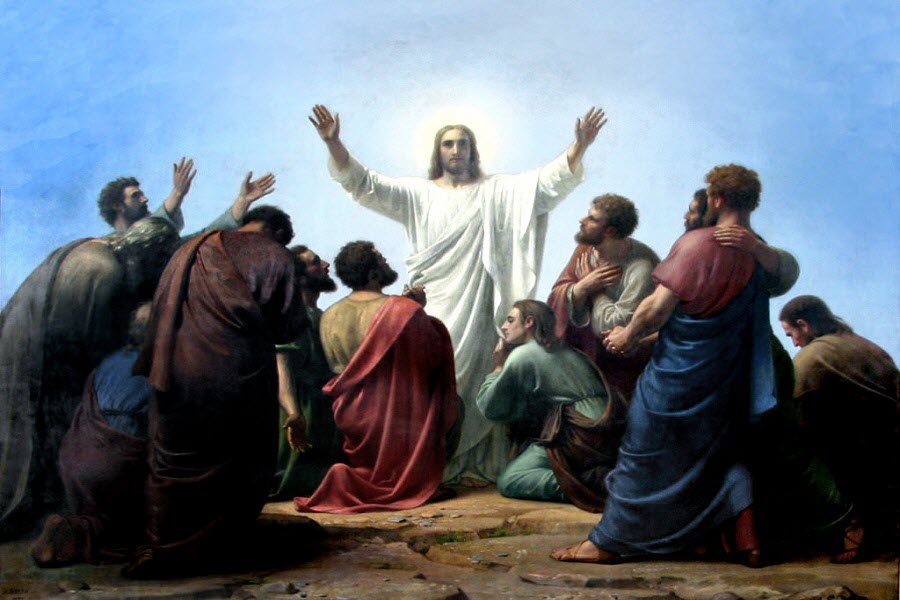
Third Sunday of Easter - Acts 3:13-15, 17-19; 1 Jn 2:1-5a; Lk 24:35-48
04-14-2024Weekly ReflectionThe Faithful DiscipleGROW: It’s only been two weeks since Easter, but already the holiday can seem like another item checked off our to-do lists. It’s easy to get complacent as we go about our busy lives – marking celebrations, important dates and gatherings on the calendar. Today’s readings remind us that the Resurrection is not just a story or a metaphor about something ordinary that happened more than 2,000 years ago. It was so different and so shocking that it trembled the very earth, and nothing has been the same since! Luke describes the confusion the disciples felt when they first saw Jesus in his resurrected body. Here was their Lord and teacher, back from the dead, but not as a ghost or spirit as they might have expected: He was just as real as before. He was eating, speaking, touching, and interacting. And yet he was different. He could arrive in a locked room without using the door, pass among people unnoticed (as on the way to Emmaus), and give gifts of wisdom and insight directly to the disciples. Today’s Gospel offers Jesus’ explanation that these things were done to fulfill the promises God made to the prophets.
READ MORE
Second Sunday of Easter - Sunday of Divine Mercy - Acts 4:32-35; 1 Jn 5:1-6; Jn 20:19-31
04-07-2024Weekly ReflectionThe Faithful DiscipleGROW: We tend to beat up St. Thomas for his doubt, when what is really most amazing in the scene from today’s Gospel is his understanding, and the first public pronouncement of, Jesus Christ’s divinity. He gets it. And he proclaims it without hesitation: “My Lord and my God.” I think about what Thomas’ face might have looked like at that moment, and I imagine a countenance of conviction alongside humility – joyful tears in the eyes that reflect awe and wonder. The truth behind his realization and understanding is that God is faithful, God is loving, God is merciful. Of course, knowing that with our heart and mind needs to be translated into doing with our every action. The early Christian communities seemed to have lived this well, happily sharing their possessions and selling what they didn’t need. Not because they had been forced to, but because the “commandments [were] not burdensome” for those who loved God. God loved us first, and by his grace, and his mercy, we are commanded and empowered to love one another.
READ MORE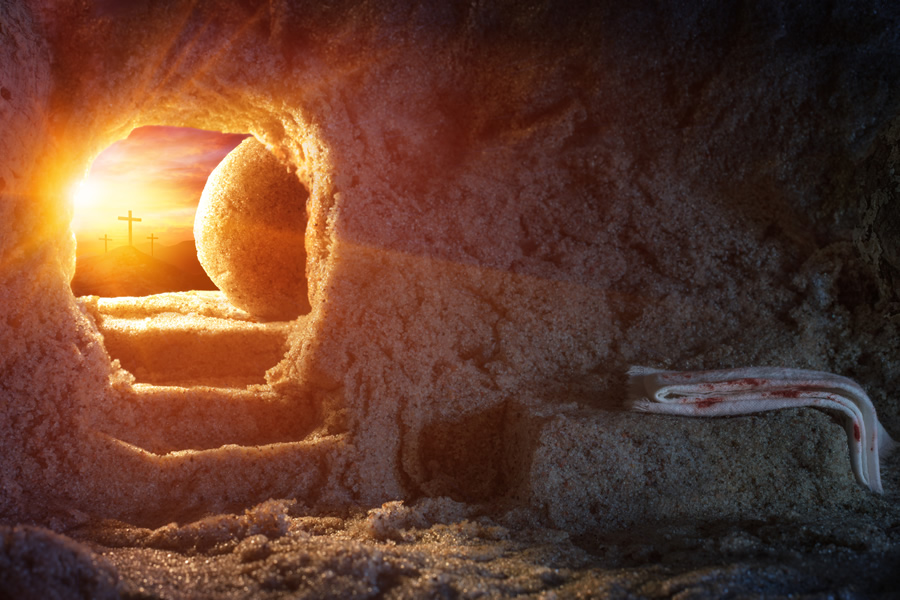
Easter Sunday The Resurrection of the Lord - Acts 10:34a, 37-43; Col 3:1-4 or 1 Cor 5:6b-8; Jn 20:1-9
03-31-2024Weekly ReflectionThe Faithful DiscipleGROW: Wishing you a blessed Easter! One of our commitments in growing as disciples of Jesus, especially at the beginning of this most important season of Easter, is to study Scripture. John’s Gospel today depicts the story of the empty tomb – the reactions of Mary of Magdala and the two disciples trying to make sense of what they had seen. What we may have missed, however, are the words of St. Peter in the first reading from Acts speaking of Jesus: “This man God raised on the third day and granted that he be visible, not to all the people, but to us, the witnesses chosen by God in advance, who ate and drank with him after he rose from the dead.” Jesus appeared post-resurrection to those to whom he was closest – the witnesses chosen by God whom he had commissioned to preach the Gospel to all people, so all might believe in him. In this way the chosen few, Christ’s heralds, would bring the Good News of his resurrection to the many. So we too, now, are witnesses, chosen by God in our baptism and come to this table of thanksgiving and sacrifice. By faith we grow as his disciples, ready to go forth to lead others to him.
READ MORE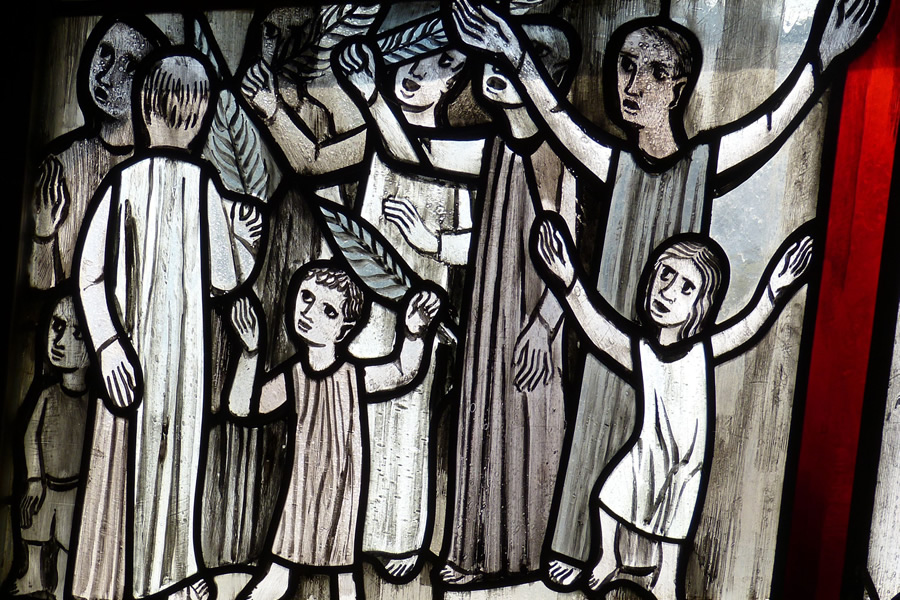
Palm Sunday of the Lord’s Passion - Is 50:4-7; Phil 2:6-11; Mk 14:1–15:47
03-24-2024Weekly ReflectionThe Faithful DiscipleGROW: “The Lord God has given me a well-trained tongue, that I might know how to speak to the weary a word that will rouse them.” This sentence from our first reading is taken from one of the four “Songs of the Suffering Servant” in Isaiah. The New Testament identifies this Servant as Jesus, and we know that Jesus accepted the suffering that was foretold in the verses that follow this one: “I gave my back to those who beat me … my face I did not hide from insults and spitting.” As aspiring servants of God on this Palm Sunday, the most holy of days when we hear Mark’s account of Jesus’ passion, how does this sentence speak to us? What does it mean to have a well-trained tongue? To me it is a call to speak to the Lord in prayer as well as to speak the Good News of the Gospel whenever and wherever we can.
Your title here...
READ MORE
Fifth Sunday of Lent - Jer 31:31-34; Heb 5:7-9; Jn 12:20-33
03-17-2024Weekly ReflectionThe Faithful DiscipleGROW: As we quickly approach Easter, we’re reminded of the reason why we are celebrating. God’s chosen people stumbled quite a bit throughout the Old Testament, so God intervened time, and time, and time again to set them back on the straight and narrow. Whereas we would likely give up on someone over time, God has remained steadfast in his grace, and always will. He created a new covenant with Israel that wrote his law upon the hearts of Jews and Gentiles alike. This new covenant was realized through Jesus Christ, who was born into our flesh and crucified on the cross. He suffered death in perfect obedience to God the Father. By being born into flesh, Jesus united humanity and divinity; through his crucifixion and resurrection, Christ “became the source of eternal salvation for all who obey him.” He is the law of love that lives within us, and through him “all, from least to greatest, shall know [the Father.]”
READ MORE
Fourth Sunday in Lent - 2 Chr 36:14-16, 19-23; Eph 2:4-10; Jn 3:14-21
03-10-2024Weekly ReflectionThe Faithful DiscipleGROW: “The floor is lava!” We used to play this game as children, and it still seems popular today: you arrange furniture and other objects in such a way as to make it from point to point, and even room to room, without touching the floor. There may be more than one way to go, but the crux of the matter is that you have to use these waypoints to stay alive in the game. Following Jesus is somewhat similar, although obviously infinitely more serious and important! He himself, through his sacrifice on the cross, opened the doors of salvation to us – he has provided the ways and means to live free from death. His sacrifice is the only thing that makes it possible for us to enter heaven. In other words, he has arranged the spiritual furniture, made clear those waypoints, and, differing from children who play the lava game, is ready and willing to help us at any time to move safely and confidently along the journey. St Paul writes, “we are his handiwork, created in Christ Jesus for the good works that God has prepared in advance, that we should live in them.”
READ MORE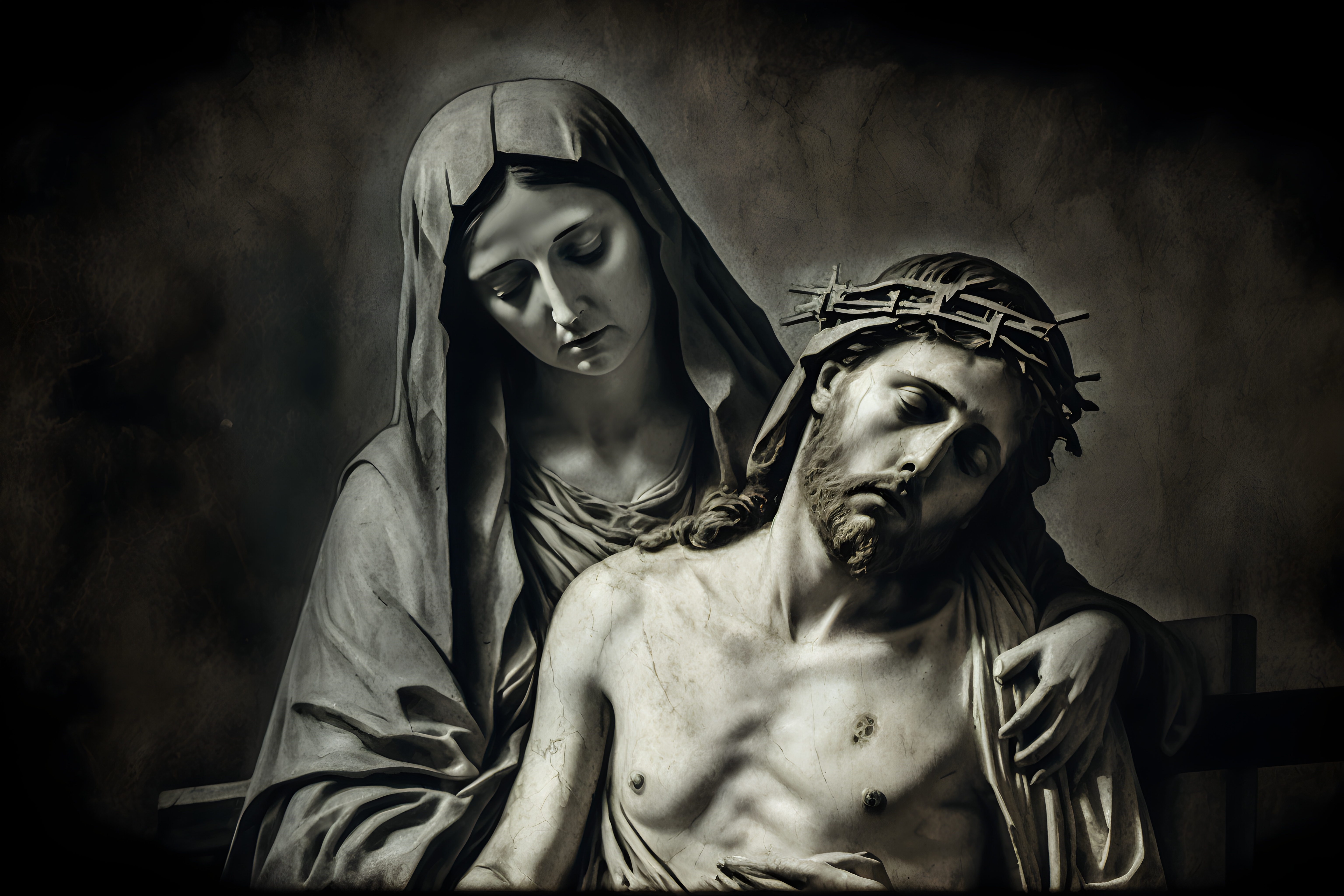
Third Sunday of Lent - Ex 20:1-17; 1 Cor 1:22-25; Jn 2:13-25
03-03-2024Weekly ReflectionThe Faithful DiscipleGROW: When I was a kid, my older siblings used to tell me what to do (no surprise there!) and often backed up their, ahem, “commands,” by saying, “Mom and Dad said so.” Interestingly, sometimes that statement was not true (!), and I would get the right information – what to do and the correct way to do it – directly from my parents. My experience is not unlike that of the Israelites in today’s first reading. As they escaped from bondage in Egypt and followed the Lord through the guidance of Moses, they developed their own ways of doing things, listened to the wrong people and acted as if they were indeed conveying truth. But the Lord steps in to correct them, and in “a direct, unmediated communication” of truth to them, gives them commandments to follow. (USCCB commentary) These instructions for how to live a moral life in relationship with God and with one another are the basis of the covenant they made there with the Lord. They are the foundation of the new covenant in which we partake through Jesus Christ, who came into our history as the perfect, unmediated communication of God.
READ MORE